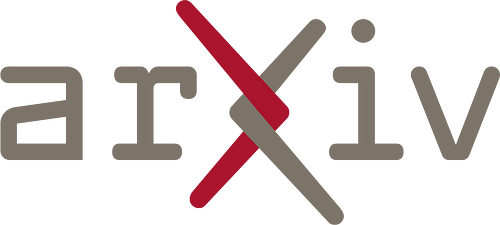
arXiv
Mission
Key Achievements
In January 2022, arXiv reached a historic submission milestone when its 2 millionth research paper was submitted and shared. Just under 2 years later, arXiv reached another important submission growth milestone. In October 2023, arXiv’s monthly submission rate was 20,710.
arXiv also recently celebrated funding milestones. Institutional arXiv memberships are essential for the funding and stability of arXiv; in 2022, arXiv reimagined and modernized its membership program, resulting in over the double the projected amount of funding for FY22, with 64% resulting from the new membership program.
In FY2024, arXiv received $10 million in gifts and grants from the Simons Foundation and National Science Foundation to support arXiv’s technology modernization and accessibility work.
Technical Attributes
Maintenance Status
Technical Attribute Statements
Technology Readiness Level
- Actual system proven in operational environment
Code Licenses Used
- MIT License
Content Licensing
- Creative commons licenses
Standards
Integrations
Community Engagement
Community Engagement
Community Statements
User Contribution Pathways
- Contribute funds
- Contribute to code
- Contribute to working groups or interest groups
More About Community Engagement
Community Engagement Activities:
Policies & Governance
Governance Summary
arXiv is governed by the Leadership team with guidance from the arXiv Science Advisory Council, Institutions Advisory Council, and Editorial Advisory Council. arXiv is housed at Cornell University.
Policies
Policy Statements
Board Structure
- Multi-board governance
Community Governance
- Formal
Additional Information
Organizational History
Organizational Structure
Business or Ownership Model
Current Affiliations
- Founding: Los Alamos National Laboratory
- Former: Cornell University Library
- Current: Cornell Tech (https://www.tech.cornell.edu/)
Funding
Primary Funding Source
- Program service revenue
Funding Needs
arXiv strives to serve the global scientific community, and funding is needed to both support arXiv’s exponential growth and foster new initiatives that will ensure arXiv remains a pioneer in open science communications, making it more useful for researchers. Funding needs include increasing headcount to catch up to arXiv’s growth and manage new projects (hiring developers for tech modernization, hiring editorial staff to keep up with the increasing submission rate, hiring user support staff to field user questions and concerns in a timely manner, etc.)
In the spirit of equitable access to research, arXiv is dedicated to making sure research is accessible for all. Funding to support arXiv’s accessibility efforts, which include transposing LaTeX to HTML format to increase readability for vision-impaired researchers, is needed to help the project progress. Other new initiatives that funding would support include arXiv’s tech modernization and migration, which will allow arXiv to sustainably grow and scale while remaining a stable platform, as well as expanding to new subject categories, creating tools to improve moderation, and increasing interoperability with new arXivLabs projects (https://info.arxiv.org/labs/).